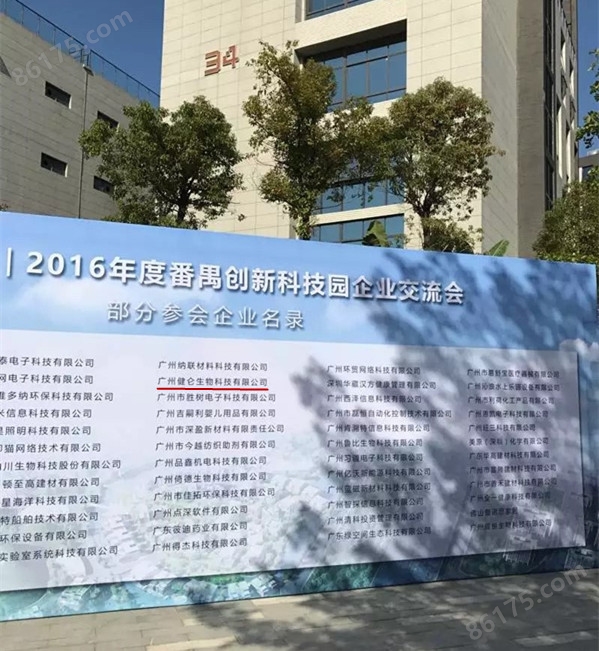請輸入產品關鍵字:
郵編:510660
聯(lián)系人:楊永漢
電話:86-020-82574011
傳真:86-020-32206070
手機:13802525278
留言:發(fā)送留言
個性化:www.jianlun45.com
網(wǎng)址:www.jianlun.com
商鋪:http://www.xldjsj.com/st199246/
斑疹傷寒立克次氏體IgG免疫熒光試劑盒
【產品簡介】
【詳細說明】
斑疹傷寒立克次氏體IgG免疫熒光試劑盒
Rickettsia prowazekii IgG IFA Kit
廣州健侖生物科技有限公司
主要用途:用于檢測人血清中的斑疹傷寒立克次氏體 IgG 抗體
產品規(guī)格:12 孔/張,10 張/盒
主要產品包括:包柔氏螺旋體菌、布魯氏菌、貝納特氏立克次體、土倫桿菌、鉤端螺旋體、新型立克次體、恙蟲病、立克次體、果氏巴貝西蟲、馬焦蟲、牛焦蟲、利什曼蟲、新包蟲、弓形蟲、貓流感病毒、貓冠狀病毒、貓皰疹病毒、犬瘟病毒、犬細小病毒等病原微生物的 IFA、MIF、ELISA試劑。
斑疹傷寒立克次氏體IgG免疫熒光試劑盒
我司還提供其它進口或國產試劑盒:登革熱、瘧疾、西尼羅河、立克次體、無形體、蜱蟲、恙蟲、利什曼原蟲、RK39、漢坦病毒、深林腦炎、流感、A鏈球菌、合胞病毒、腮病毒、乙腦、寨卡、黃熱病、基孔肯雅熱、克錐蟲病、違禁品濫用、肺炎球菌、軍團菌、化妝品檢測、食品安全檢測等試劑盒以及日本生研細菌分型診斷血清、德國SiFin診斷血清、丹麥SSI診斷血清等產品。
歡迎咨詢
歡迎咨詢2042552662

二維碼掃一掃
【公司名稱】 廣州健侖生物科技有限公司
【】 楊永漢
【】
【騰訊 】 2042552662
【公司地址】 廣州清華科技園創(chuàng)新基地番禺石樓鎮(zhèn)創(chuàng)啟路63號二期2幢101-3室
【企業(yè)文化】


發(fā)表于2014年9月16日的《eLife》的新研究中,紐約大學朗格尼醫(yī)學中心和其他地方的科學家*報告了,一種叫做翻譯延伸因子eEF1A1的蛋白掌管了熱休克反應的整個過程。通過這樣做,eEF1A1支持細胞內的總蛋白的動態(tài)平衡,確保其在各種內部和外部的壓力條件下正常運轉。研究人員表明,這項發(fā)現(xiàn)有可能揭示一個有前途的、新的用于神經退行性疾病和癌癥的藥物靶標。
研究人員說,多種老年性疾病茁壯成長,取決于細胞如何對高溫和其他的壓力作出反應。熱休克蛋白(HSP)作為其他蛋白質的分子伴侶,幫助它們正確折疊以及支持它們運作。在神經退行性疾病中,雖然神經元缺乏但足以保護HSP,將它們與蛋白質的破壞應力隔離開。大多數(shù)神經退行性疾病的特點是蛋白質錯誤折疊。如果熱休克反應可以在老化神經元中使其功能全面恢復,那么錯誤折疊的蛋白質可以正確折疊,這有可能避免或阻止疾病的進展,如阿爾茨海默氏癥,帕金森氏,或肌抗原抗體性側索硬化癥(ALS)。與此相反,許多類型的癌細胞依靠HSP來存活。因為高水平的熱休克蛋白能夠啟動癌細胞生長和增殖,消耗這些細胞的熱休克蛋白,有可能使腫瘤對化療和放射療法變得敏感。
“這可能有點言之過早,但我們認為,我們zui終可以開發(fā)出一種小分子激活劑和抑制劑來調整熱休克反應,”這項研究的*研究員Evgeny Nudler博士說。紐約大學朗格尼醫(yī)學中心的生物化學與分子藥理學教授朱莉·威爾遜·安德森教授說:“eEF1A1同時控制熱休克反應的每一個步驟。”
In a new study, "eLife," published September 16, 2014, scientists at New York University's Langley Medical Center and elsewhere first reported that a protein called the translation elongation factor eEF1A1 governs the entire course of the heat shock response . By doing so, eEF1A1 supports the homeostasis of total protein in the cell and ensures its normal operation under a variety of internal and external stress conditions. Researchers have shown that the discovery is likely to reveal a promising new drug target for neurodegenerative diseases and cancer.
The researchers say that a variety of aging diseases thrive on how cells respond to high temperatures and other stresses. Heat shock proteins (HSPs) act as chaperones to other proteins, helping them to properly fold and support their functioning. In neurodegenerative diseases, neurons are deficient but sufficient to protect HSPs from their destructive stress on proteins. Most neurodegenerative diseases are characterized by protein misfolding. If the heat shock response fully regains its function in aged neurons, misfolded proteins can fold properly, potentially avoiding or preventing disease progression such as Alzheimer's disease, Parkinson's disease, or myogenic antigens Antibody lateral sclerosis (ALS). In contrast, many types of cancer cells rely on HSPs to survive. Because high levels of heat shock proteins can initiate cancer cell growth and proliferation, depleting the heat shock proteins in these cells may make the tumor susceptible to chemotherapy and radiotherapy.
"It may be a bit too early, but we think we could eventually develop a small molecule activator and inhibitor to modulate the heat shock response," said Evgeny Nudler, MD, a senior researcher with the study. Professor Julie Wilson Anderson, a professor of biochemistry and molecular pharmacology at the Lanington Medical Center at New York University, said: "eEF1A1 simultaneously controls every step of the heat shock response."


 QQ交談
QQ交談 MSN交談
MSN交談
